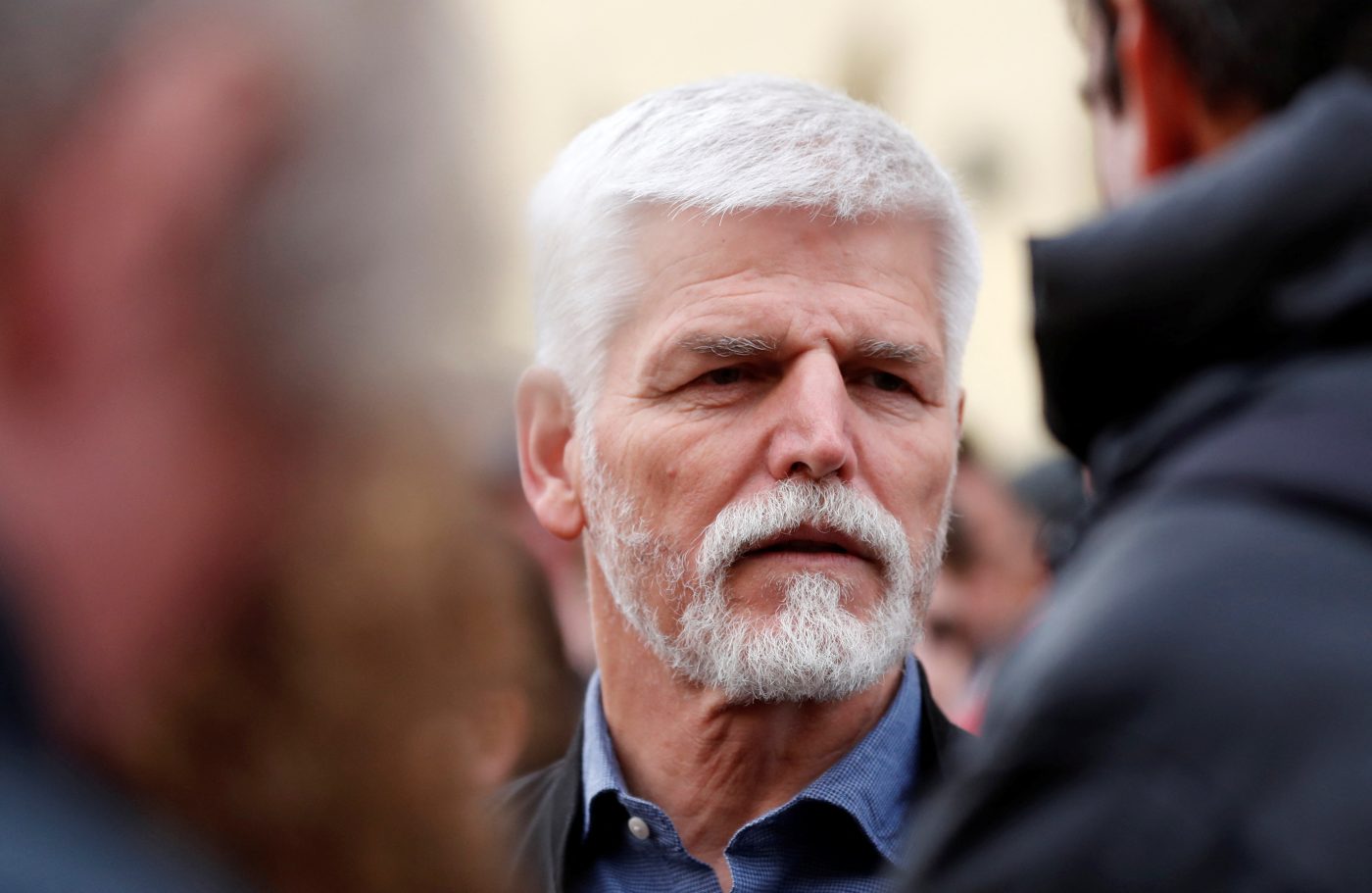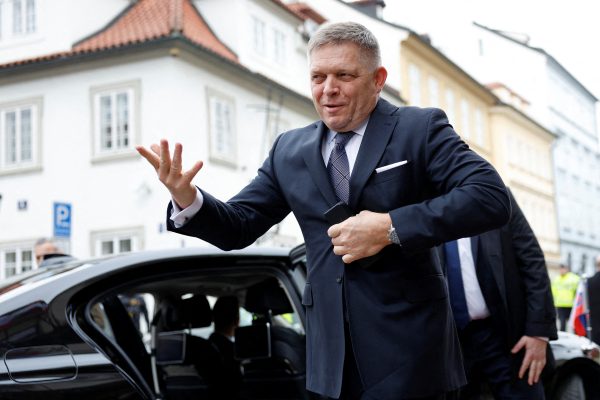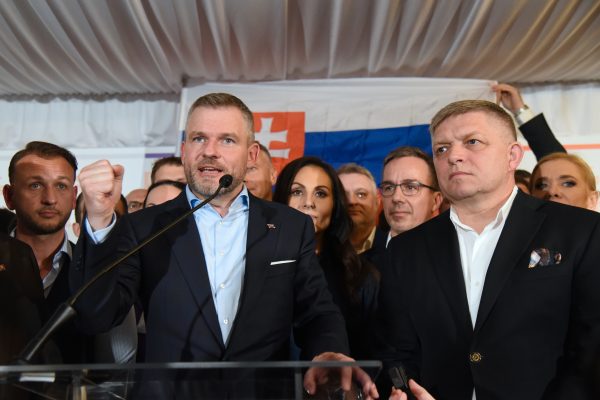The first round of presidential elections on January 13 and 14 suggest that is about to change. No candidate achieved an outright victory by winning 50% of the vote, and the elections will head to a runoff on January 27-28. The two remaining candidates will be retired army general and former Chair of the NATO Military Committee Petr Pavel, who won 35.39% of the vote compared with 35% for ex-prime minister Andrej Babiš. The economist Danuše Nerudová, who had been favored by some polls towards the close of last year, finished a poor third. Not always reliable polls suggest Pavel would beat Babiš by around 60%-40% in the second round.
The two men represent two very different visions of the presidency. Throughout his campaign, Pavel has emphasized his Western credentials, downplaying his membership in the Communist Party before 1989 and his military training under the previous regime. He is a vocal supporter of Ukraine in its resistance to Russian military aggression and has warned of both Russian and Chinese influence in the Czech Republic. Pavel also maintains a liberal course in non-security issues, endorsing both the Euro and gay marriage.
In contrast, Babiš supports an isolationist vision of the country. As leader of the largest opposition party, he has criticized the Czech government’s aid to Ukraine and Ukrainian refugees, saying that Prime Minister Petr Fiala is neglecting his duty to Czech citizens. He makes no secret of his close ties to Hungarian Prime Minister Viktor Orbán, who even campaigned (unsuccessfully) for Babiš in the 2021 parliamentary elections, and is largely opposed to joint European action against the Russian invasion. Finally, Babiš has received the support of President Miloš Zeman, who, until the Russian invasion of 2022, was a firm advocate of Russian interests.
A Pavel victory would be endorsed by the current government. The 61-year-old has the support of Prime Minister Fiala, who leads a staunchly pro-Ukrainian administration that has sent arms to Kyiv, amounting to around 1% of GDP.
But the campaign is far from over, and the next two weeks promise to be extremely bloody. Babiš greeted the results by describing Pavel as a communist spy. “I congratulate him for making it all the way to the NATO Military Committee as a communist intelligence officer, trained in Russia . . . Hats off to him,” he said. Babiš owns an extensive media portfolio through a trust.
Babiš has offered nothing beyond innuendo. Pavel was praised by NATO Secretary General Jens Stoltenberg when he left his post at the alliance in 2018 and was decorated for leading a unit to save besieged French troops during the Bosnian war in 1993. By contrast, Babiš was an agent of the communist secret police, the StB, from 1982-88, according to Slovak records. He has lost court cases asking Slovakia to strike his name from the agent list, most recently in 2020. Babiš denies that he worked for the StB, but accepts that he — like Pavel — was a Communist party member.
The Czech Republic is not a presidential democracy, and whoever wins the election will not be the deciding factor in making Czech foreign policy. However, he will not be a mere figurehead either. Outgoing President Zeman has been quite expansive in interpreting the scope of his own constitutional powers and did so not infrequently in service of Russian interests. Using his leverage over Babiš’s last minority government, Zeman successfully demanded the sacking of Health Minister Jan Blatný, who opposed the use of Russia’s Sputnik V vaccine. He attempted to do the same to Foreign Minister Tomáš Petříček, who opposed Russian and Chinese participation in tendering nuclear power, and gladly confirmed as his successor the more amenable Jan Hamáček when Petříček lost his place in an intra-party squabble.
Babiš is not prima facie a pro-Russian candidate. Certainly not in comparison to Jaroslav Bašta, who was eliminated in the first round despite his promises to bring back “peace and normal life” and to (unconstitutionally) recall the government. Nevertheless, Bašta’s result of 4.5% was enough to make his supporters a target for Babiš in the second round.
Besides, Babiš would not be the first president to change his tune to a Russian kalinka upon being elected to office. As prime minister, Zeman (rather unhappily) presided over the Czech Republic joining NATO operations in the former Yugoslavia, and he began his presidency by hoisting the EU flag above Prague Castle. Zeman’s predecessor Václav Klaus — who opposed the NATO intervention at the time — would develop but slowly into one of Vladimir Putin’s “warmest admirers abroad,” justifying Russia’s aggression in 2014 and amplifying its disinformation narratives even in the wake of the recent invasion.
If Zeman’s presidency is any kind of indication, then Babiš’s existing connections are another cause for concern. During his tenure, Zeman repeatedly fended off allegations that his 2013 presidential campaign was sponsored by Lukoil. The vice-chair and sponsor of the President’s political party (SPOZ), Martin Nejedlý, was at the time Lukoil’s Czech representative. Similarly, a number of people in Babiš’s orbit have close ties to Russia. Perhaps the most widely recognized is Petr Protopopov, the son-in-law of a Russian diplomat, who is accused — and denies — involvement in the alleged abduction of Babiš’s estranged son in Russian-occupied Crimea as part of the so-called Stork’s Nest affair.
Of course, security is but one issue among many in Babiš’s campaign. While the politician was recently cleared of charges in a long-awaited trial regarding one instance of alleged misappropriation of EU funds, other problems remain. Babiš has allegedly continued to exert significant influence over his large media empire. Furthermore, he faces an investigation in France for alleged money laundering uncovered by the Pandora Papers.
It remains to be seen how significant these concerns will be, come the second round. They were certainly not significant to Emmanuel Macron, who received Babiš at the Elysée Palace just days before the first round.
Ladislav Charouz is a master's student in International Relations at the University of Oxford. He earned his bachelor's degree in history and English and a master’s degree in history from Yale University. He has interned at CEPA, Brookings, European Values, and ICDS.
Europe’s Edge is CEPA’s online journal covering critical topics on the foreign policy docket across Europe and North America. All opinions are those of the author and do not necessarily represent the position or views of the institutions they represent or the Center for European Policy Analysis.





